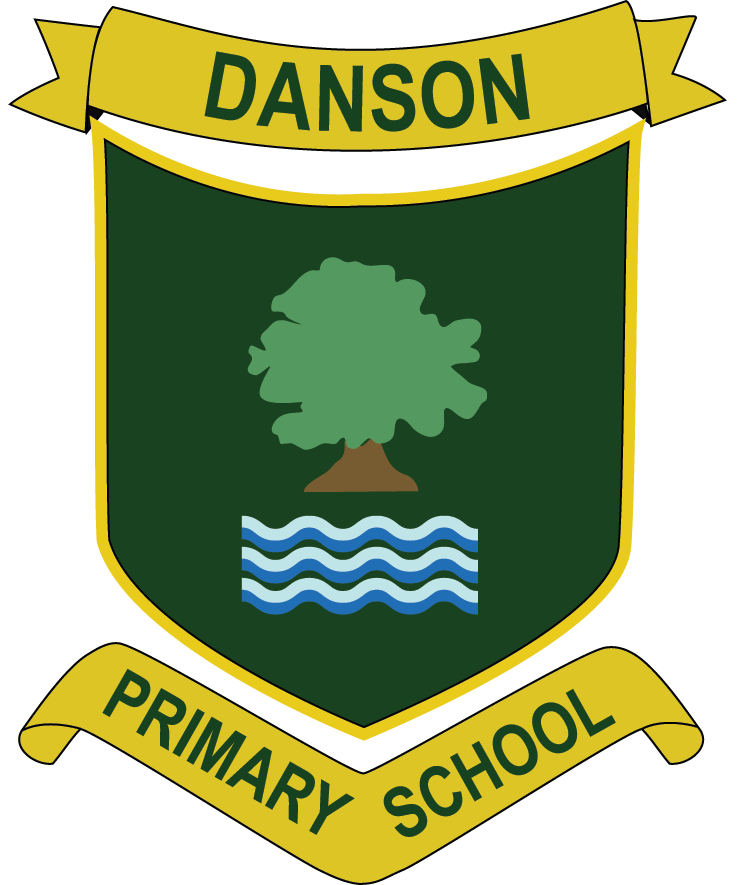English
English at Danson
At Danson Primary School, we believe that English is fundamental for children’s learning in all areas of the curriculum and requires the children to use many skills simultaneously. Our English curriculum provides the children with the opportunity to access a broad and balanced range of literature and language. High quality texts and books are at the heart of our curriculum and links to writing across the curriculum are enriched as pupils develop a love of reading and an excitement in the potential offered by books and their own and others writing. We believe that providing a consistent and progressive approach to English learning from Nursery to Year 6, with speaking and listening activities as an accessible entry point for all, will enable our pupils to move to secondary school as confident, independent and literate learners.
Our curriculum closely follows the aims of the National Curriculum to ensure all pupils:
- Read easily, fluently and with good understanding
- Develop the habit of reading widely and often, for both pleasure and information
- Acquire a wide vocabulary, an understanding of grammar and knowledge of linguistic conventions for reading, writing and spoken language
- Appreciate our rich and varied literary heritage
- Write clearly, accurately and coherently, adapting their language and style in and for a range of contexts, purposes and audiences
- Use discussion in order to learn; they should be able to elaborate and explain clearly their understanding and ideas
- Are competent in the arts of speaking and listening, making formal presentations, demonstrating to others and participating in debate
Early Reading and Phonics at Danson
Reading at Danson
Reading Journeys at Danson Primary School
Below you will be able to see the Reading Journeys for each year group at Danson Primary School. The images show what texts the children will be focusing on throughout each term.
Writing at Danson
Below are some examples of the fantastic writing from different year groups at Danson Primary School. English lessons are based around a core text and these texts form the stimulus for the writing that the children produce. We ensure that a range of genres are covered throughout the year so that the children are exposed to the different skills required for each genre.
Author Experiences
Here at Danson Primary School we are very fortunate to have authors visit the school to talk with the children about reading and writing. On Wednesday 22nd November 2023, we were delighted to welcome the author, Sasha Parker to Danson. She came to share her wonderful new book, ‘The Land of Telleny’ that educates the reader about the nutritional benefits of fruit and vegetables through entertaining, imaginative rhymes. Please click on the link below for more information about Sasha's visit to Danson Primary School.
Core Reading Texts at Danson Primary School
Reception Core Reading Texts at Danson
Year 1 Core Reading Texts at Danson
Year 2 Core Reading Texts at Danson
Year 3 Core Reading Texts at Danson
Year 4 Core Reading Texts at Danson
Year 5 Core Reading Texts at Danson
Year 6 Core Reading Texts at Danson
Parent Workshops
Here at Danson Primary School we also continue to work with our parents regarding early reading and phonics. We run workshops for our parents so that they have the chance to come into school and learn how we teach phonics and early reading. Below are the slides from the workshop that was presented to parents at the start of the year.
English Skills Progression
Below are the skills progression that teachers at Danson Primary School use when teaching English. The skills in Speaking and Listening, Reading and Writing are sequential and build from the previous year group.
Speaking and Listening
Speaking and Listening Progression - EYFS & KS1
Speaking and Listening Progression - KS2
Reading
Reading Progression - EYFS & KS1
Writing
Writing Progression - EYFS & KS1
National Curriculum - English
Websites
Danson Book Week 2024
For the last few weeks at Danson, the children and staff have been immersed in our reading journey and fostering an enthusiasm and love of reading. It has been wonderful to see how actively engaged the children have been in all the different activities that have been taking place.
Author Visit
To launch the week, we welcomed author Josh Lacey to the school. He delivered fascinating assemblies for all year groups, talking about his life as an author, the inspiration for his books and the resilience needed in getting your writing published. Josh introduced us to the characters in his stories and read extracts from a range of his books. In each assembly, the children had the opportunity to ask him a huge variety of inquisitive questions about his books and the writing process.
Following the assemblies, Josh led some motivating workshops for Year 5, in which they began to write their own narratives. Through different activities, they developed the characters and setting for their stories and enthusiastically set about writing the opening of their stories. All the children were inspired to continue their stories after the workshop.
Narrative Writing
During the week, the whole school read a book called, ‘I don’t like books. Never. Ever. The End’ in their classes. The book is about a little girl, Mabel, who does not like books. Until one night, as she settles into bed, the books take charge, flapping around Mabel’s head and pulling her into their pages. She is amazed to meet a variety of characters who provide tantalising glimpses of thrilling escapades. She finally realises that stories are a gateway into limitless worlds of excitement, magic and adventure.
The children used the story as a stimulus for writing their own short narratives describing Mabel ‘s next adventure. Following the writing process, the children planned, wrote, edited and then published their final pieces of writing, which resulted in some brilliant, imaginative stories showcasing their writing ability.
During the week, the whole school read a book called, ‘I don’t like books. Never. Ever. The End’ in their classes. The book is about a little girl, Mabel, who does not like books. Until one night, as she settles into bed, the books take charge, flapping around Mabel’s head and pulling her into their pages. She is amazed to meet a variety of characters who provide tantalising glimpses of thrilling escapades. She finally realises that stories are a gateway into limitless worlds of excitement, magic and adventure.
The children used the story as a stimulus for writing their own short narratives describing Mabel ‘s next adventure. Following the writing process, the children planned, wrote, edited and then published their final pieces of writing, which resulted in some brilliant, imaginative stories showcasing their writing ability.

Reading Buddies
During the week, KS2 and KS1 classes came together and the children paired up to share and read books together. This provided the opportunity for the older children to act as reading role models and for them to support the younger children with their reading. The sessions encouraged lots of conversations about books and reading. All the children found it a really positive, enjoyable experience and they cannot wait to repeat it in the future.
Classroom Door Competition
As part of Book Week, every class was given the challenge to decorate their door around the theme of a book. The winning doors were able to choose some books from the Book Fair for their classroom reading corners. It turned out to be extremely competitive and the finished doors look amazing! All the classes had the opportunity to walk around the school to view the doors and vote for their favourites. Well done to Franklin Class for coming third, Hawking achieving second place and Pepys Class for being the overall winners. However, all the classes need to be congratulated for creating such wonderful displays that have certainly been a talking point for everyone that sees them.
‘Book Character Model’ Competition
The models created for our ‘Book character Model’ competition were incredible! The time, effort and creativity that was put in was amazing. Thank you to all parents and carers that assisted their children in constructing these wonderful models. As the children walk through the corridor, they have been a real talking point and the focus of much admiration. Choosing the winners was a real challenge as all of them deserve recognition for the effort taken to create them. Well done to all of the entries!
